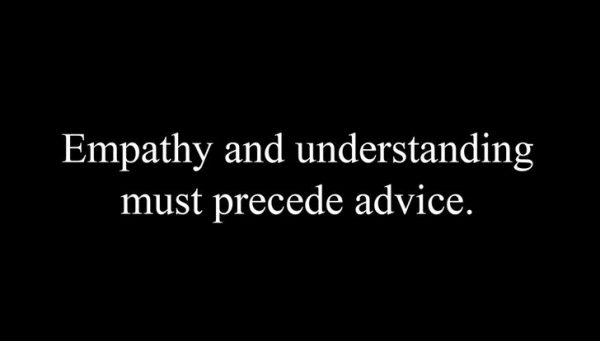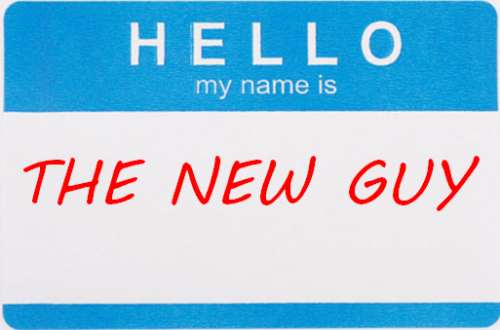There are two verbal answers to a Yes or No question: Yes and No (Note: For those who migrate to “sure”, please consider showing a little less apathy). It is my experience that over time too many of us are conditioned to constrain ourselves by defaulting with the negative response. Even if we decide to respond in the affirmative, our non-verbal responses often times take away from our verbal messaging.
At home, I am noticing more and more that my son’s default response is “No” and that bothers me. In fact, my wife and I have dubbed him “Captain No”. Because my first response to any situation that displeases me is to assess how I have contributed to it, I can’t help but think he is emulating behavior he sees at home. Sure enough, since playing closer attention to both my words and the words of others in his presence, I have witnessed me and other adults negating him with”No”, more often than affirming with “Yes”. Some will say that a child needs to have boundaries and the word “No” is the primary means many use to set them. Well, it pains me to say that at the age of eight, my son is conditioned to not only tell others “No”, but has begun to tell himself “No” (e.g., denying himself opportunities and experiences). As a way of having some fun with corrective action, we have since set up a money jar that requires each family member to make a donation when he or she uses the word “No”.
In my professional life, I am personally committed to saying “Yes” and encouraging others to do the same. In fact, our philosophy at NIOC Pensacola continues to be “Don’t tell yourself no, and your Chain of Command will find a way to say Yes.” That being said, I am astounded by the number of Shipmates who are all too willing to tell themselves “No” and thereby not only deny themselves opportunities but also allow others to believe that complying with the status quo is desired behavior. At the same time, I see many individuals who are willing to adopt the “Yes” philosophy, only to be told “No” by someone else in the Chain of Command and over time repeat the cycle with their juniors.
Don’t get me wrong, I understand that both parenting and leading a team comes with the responsibility to use the word “No” when warranted, and I am given reason to use the word more than I care to (few things are as irresponsible as deferring the role of “Bad Guy” to a senior). The truth is, I have never responded well to the word “No”. Yes, I respect authority when I am told “No”, but I don’t like being told that I am not capable of doing something that I truly want to do or see great value in doing. My concern is that we in the military are too quick to blindly comply with “Ref A” and follow the Standard Operating Procedures (SOPs). I emphasize the word “blindly” because clearly command and control requires compliance and commitment to shared standards when it is time to execute. I offer that rather than focus on creating boundaries through the use of the word “No”, we should aspire to reach beyond those boundaries, give ourselves permission and create ways to tell ourselves and juniors “Yes”.
I have a renewed commitment to using the word “Yes” as much at home as I do at work. I am committed to helping my son to make as few donations to our “No Jar” as possible. I am committed to helping as many people as possible to break through the boundaries they have placed upon themselves after years of being coached to conform by teachers, parents and other authority figures.H
- How many times have you told yourself or someone else “No”?
- Who are you holding back and why?
- What will you say “Yes” to next?




On a lighter note, here's a good way to build the "No" fund:
Dad: Eat your .
Son: No!
Dad: Cha-ching!!
I wonder how much the "no" culture is a product of the inherent risk aversion exhibited particularly at the upper echelon of leadership in the Navy. Particularly with URL Commanding Officers, I'm sure every decision they make is tempered with a "how can this get me fired?" This results in individuals who think more according to doctrine and instructions, likely established 10 or 20 years ago, rather than fostering an environment where innovation and creativity reigns. Another interesting challenge is with our current optempo, again particularly on the URL side, where is there time to sit down and really come up with innovative solution to problems when you can just pull up some random instruction and do what the Navy tells me to do?
Just some random thoughts.
LTJG S.
Very good stuff, I'll remember this.
-Zach
If you continue to push, something will give.
YES, there are too many documents that exist to tell us no (and many outdated…"can you update this piece of [colorful noun]?". -"No!"). It has become an age of not wanting to look foolish among peers. People default to "what will people think of me" instead of thinking for themselves. It does seem that YES only exists YESterday for some people. I say "off with the societal and self-imposed negative-nancy shackles and let's explore the art of the possible. It all starts with an assumed YES.